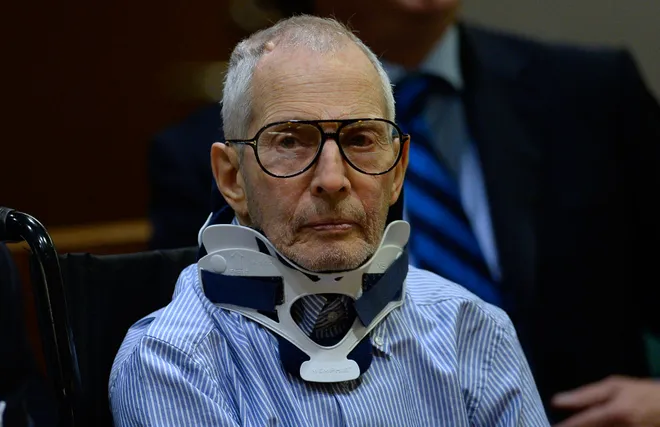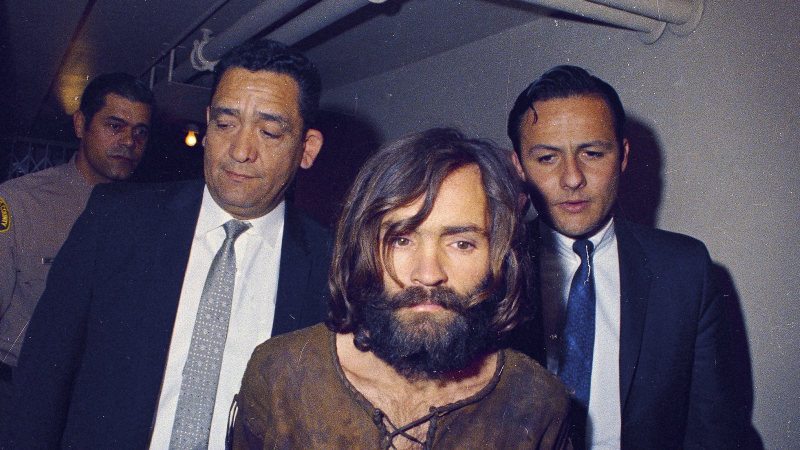Andrew Jarecki on new 'Jinx,' Durst aides: 'Everybody was sort of in love with Bob'
What the hell did you do on Sunday? Watched “The Jinx,” of course.
HBO unleashed its second six-episode installment of the Emmy-winning true-crime docuseries (Sundays, 10 EDT/PDT and streaming on Max), focused on real estate heir Robert Durst.
The first season examined the unsolved 1982 disappearance of Durst's first wife, Kathleen McCormack; the killing of his best friend, Susan Berman, who was shot in her Los Angeles home in 2000; and the death in 2001 of his Texas neighbor Morris Black, found dismembered in Galveston Bay. In the finale, Durst admitted he had "killed them all, of course” in a hot-mic confession captured during an off-camera trip to the bathroom.
“The Jinx – Part Two” begins with Durst’s arrest in 2015 at a New Orleans hotel for Berman's murder. Though Durst had agreed to be interviewed for the first season, he declined to meet with “The Jinx” director Andrew Jarecki after his arrest, Jarecki says. Durst appears in "Part Two" via footage of visits and phone calls that occurred while he was in custody.
“I’m all right. I mean, I’ve been here before,” Durst tells his lawyer, Steven Rabinowitz. A jury acquitted Durst of Black's death in 2003, and it appeared he thought he’d elude prison once more. “I don’t think I’ll be here much longer, but this is the worst,” Durst says during another recorded call with a friend. Durst was sentenced to life in prison in 2021 for Berman's killing, and he was indicted that same year in the slaying of McCormack. But he died of natural causes in early 2022 before standing trial in that case. He was 78.
What to know for Season 2:How 'The Jinx' led to Robert Durst's long-awaited conviction
Robert Durst's accomplices 'would have taken care of anything' he needed
“When we were making the first season we used to say, ‘How do you kill three people over 30 years and get away with it?’” Jarecki says. People view Durst “as this lone wolf who was out there doing bad stuff, but the truth is he was a guy with incredible resources, a wide range of acquaintances, influence over a lot of people, and he managed to bring a whole bunch of people along with him who helped him in various ways.”
In Sunday's second-season premiere, a friend tells Durst after his arrest, “Whatever I could do for you, Bobby, it’d be my pleasure, OK?” Another informs the suspect, “I wanted you to know I would have taken care of anything you needed taking care of.” The episode also reveals how Chris Lovell, a juror in Durst’s 2003 murder trial in Galveston, helped him clear out his Houston apartment after “The Jinx” began airing and Durst fled to New Orleans with more than $40,000 in cash, a latex mask, a revolver and a map of Cuba.
Critic's take:HBO's Robert Durst documentary 'The Jinx' kills it again in Part 2
Durst became 'very nervous' after Episode 5 of 'The Jinx'
Under questioning by Los Angeles County Deputy District Attorney John Lewin, Durst acknowledges contemplating leaving the country but ultimately decided against it because “I just didn’t really, really, really think that I was going to end up arrested.”

New York Times reporter Charles Bagli says in Sunday’s premiere that he and Durst chatted after Season 1 episodes aired. After watching Episode 5 − which revealed Durst wrote Berman with the same misspelling of Beverly Hills as a note sent to police notifying them of a body at Berman’s − Durst became “very nervous,” Bagli says. “This seems to be proof-positive that he killed Susan.”
“It was never an intention necessarily to come back and do more if this story didn't warrant it,” says Jarecki's producing partner Zac Stuart-Pontier. “But then once the trial started heating up and the arrest happened and some of Durst’s friends started flipping on him, the story just continued. It almost felt like a necessity to make more episodes.”
When making friends, 'Bob chose a lot of vulnerable people'
Later in the season, viewers meet Nathan “Nick” Chavin, a close confidant of Durst’s and Berman’s who can be seen in the "Part Two" trailer asking, “What do you do when your best friend kills your other best friend?” But it took time for Chavin to break Durst’s spell. “It’s hard to imagine the closeness,” Chavin says in Episode 2. “It just made me glow.”
Jimmy Kimmel mocks Donald Trumpfor Oscars rant, reveals he may now host ceremony again

Durst could obviously assist his friends financially if needed, but he also offered sincere companionship.
"People get lots of things from him that are not money, but everybody kind of ends up getting some money from Bob," Jarecki says. "And Nick didn't really get money from Bob. Nick just got the feeling of of friendship."
“It is like a breakup,” Jarecki says. “And everybody was sort of in love with Bob, these people in their own ways − whether it's women or men. He had a unique quality of being able to draw people in and getting them to believe things that they might not have believed if they had read it on a page. There's something about Bob's voice. There's something about his dominant personality.
"And Bob chose a lot of vulnerable people. He had people in his (life) that weren't really going to challenge him, and then he had people in his life that had needs. And when you have needs and they have needs, you can figure out a way to get them to do your bidding.”
Disclaimer: The copyright of this article belongs to the original author. Reposting this article is solely for the purpose of information dissemination and does not constitute any investment advice. If there is any infringement, please contact us immediately. We will make corrections or deletions as necessary. Thank you.







